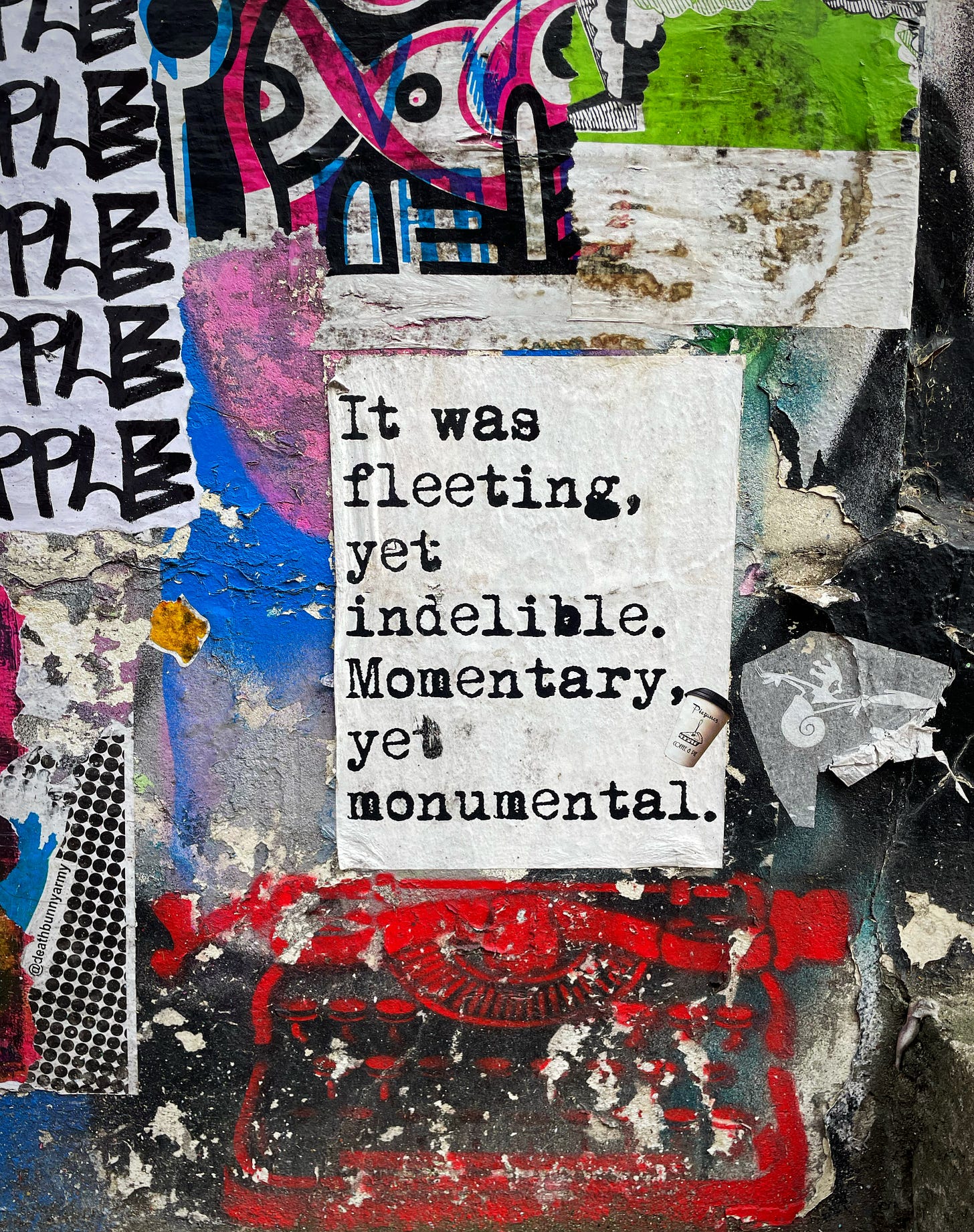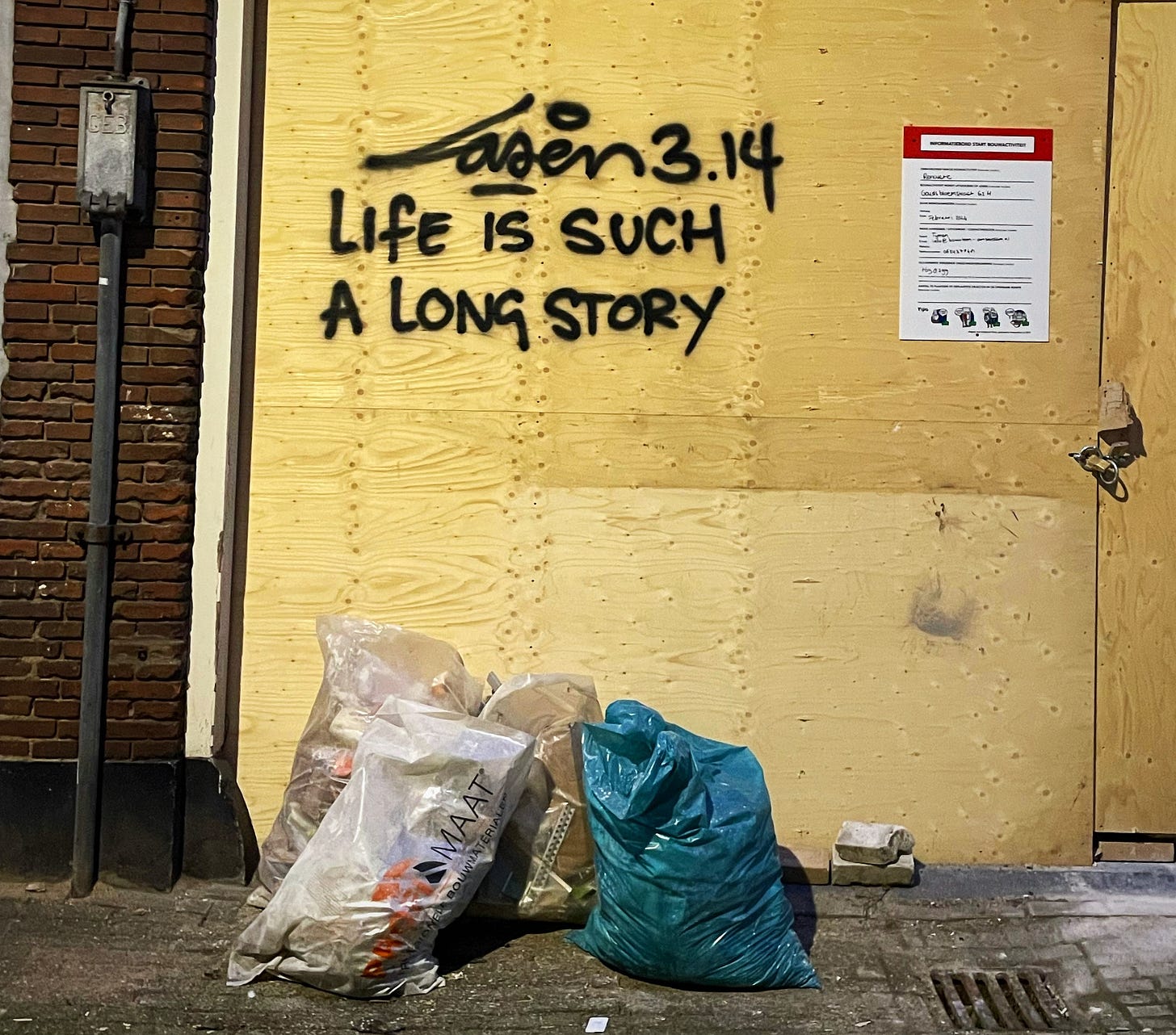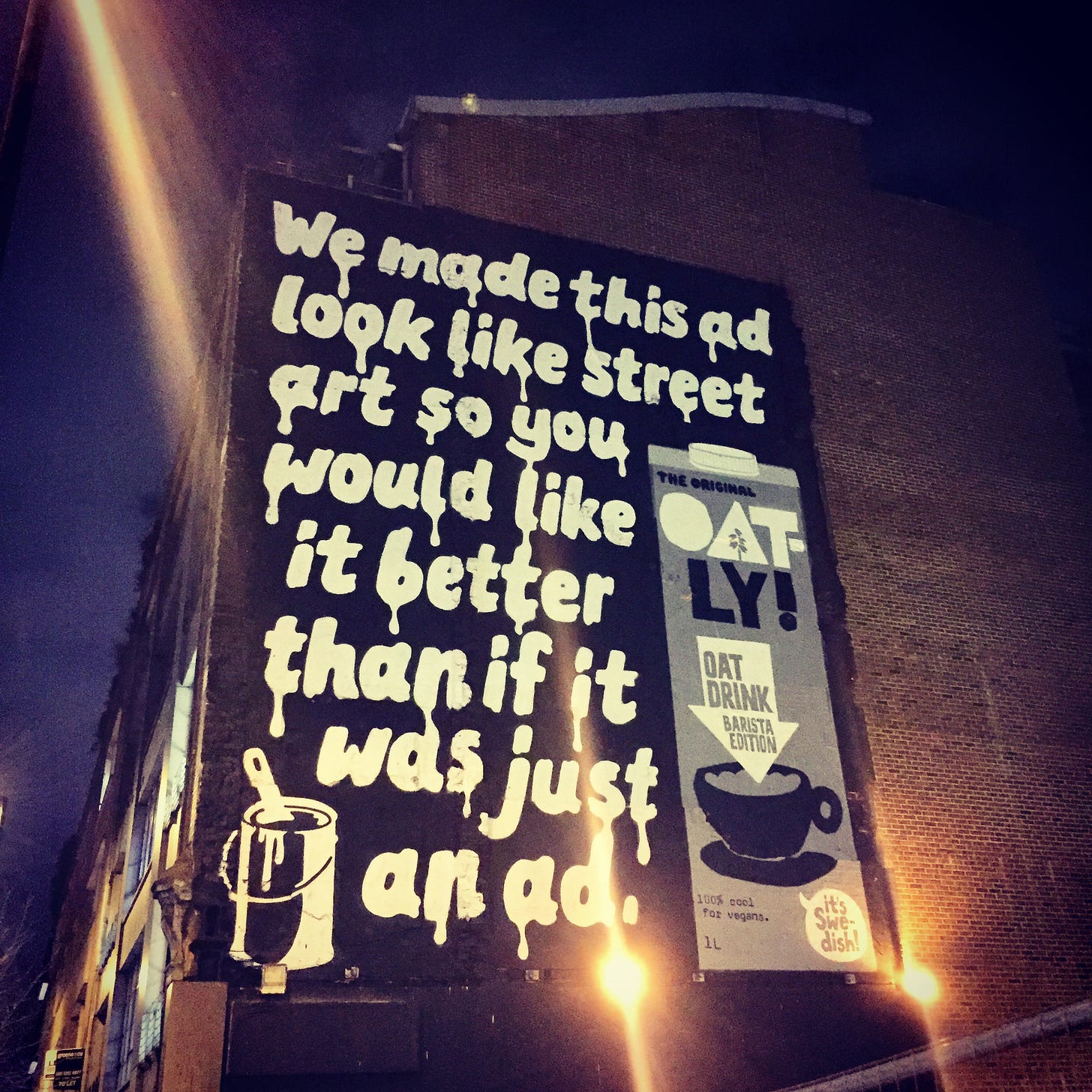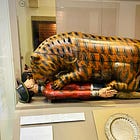Walking to find the words
Feeling lost for words? Take a stroll around town – they’re all around you
Hello walkers and writers 👋🏻
My last edition, Walking with what3words, appears to have ignited some creative fires with many of you getting in touch to tell me what a fun idea it is. I love it when a walking and writing prompt hits the spot and people share their words with me. Speaking of which, check out ///sleep.alongside.words written in 2023 by Sandy Wilkie for Bringing Home the Catch, a creative collective that aims to promote interest in coastal landscapes. It’s a short poem with each line written in the format of a what3words address. Great minds, eh?
We’re now into February, which means The Longest Month Of The Year is finally over. So if January left you feeling a little sluggish, or if you’re struggling to find something to write about, then this walk might help you channel your inner magpie, so you can steal words from the street.
Walking
I get a lot of my writing inspiration from the street. London, like most cities and towns, is alive with words. They’re on billboards and pavements, in shop windows and street art. So whenever I need to come up with a snappy headline for a client or need a bit of a boost, I grab my binoculars and head to the streets on a Copy Quest.
I look out for ads, like this one for Oatly from a few years ago:
I check out the graffiti and street art – which often come with lots of words. Sometimes I find entire poems like this one from an anonymous paste-up artist whose name has been ripped from the poster:
Sometimes the writing on the wall is reflective or philosophical:


Sometimes a mundane public transport sign can feel like solid life advice:
As can the words that might go unnoticed beneath your feet:
And while a lot of street art is political, some of it can be a little bit lovely and sentimental:
And once in a while I find a piece of art, spray painted on a wall, with a writing prompt built in, like this one from French artist David Selor. What letter to the world would you write?
So the next time you’re feeling lost for words, go for a walk and find them. Look at traffic signs, posters in shop windows and scrappy notes Sellotaped to doors. Look up at billboards and at the side of buildings where you might catch a glimpse of an old, hand-painted advert. Look at the pavement to see if anyone’s stencilled a message there during the night. Take photos, draw quick sketches or scribble the words down in your notebook. Grab the ones that capture your attention – with bold, brassy headlines. And seek out the unassuming ones that might hold a deeper meaning if you look at them from a different angle.
Writing
This time we’re going to make a poem or short piece of prose using the words we ‘stole’ from the street. Using words or lines in this way is known as found poetry and I’m a big fan of the technique. I think it’s an easier way to explore creative writing if it’s something you’ve not done before, and even more experienced writers can use it for a nice change of pace, or as a warm-up exercise.
There are different ways to try it:
Blackout, or erasure, poetry is made by blanking out or erasing the words or lines you don’t want, so that the words you leave behind become the poem.
Centos are made by taking lines from different poems.
Cut-up poetry is made by cutting up lines from a single text and then rearranging them to make a poem.
Unless you find a big block of text on the street then the blackout/erasure approach will be tricky. So what we can do instead is a mash-up of a cento (different lines, phrases and words as the source) and cut-up poetry (chopping up the individual lines into smaller ones).
Take the words and lines you found and see if you can arrange them into something else. And rather than use the words or lines as they were written, try breaking them up into smaller phrases, add your own words here and there, and play around with different punctuation to see how that changes the meaning of your piece. There are no rules here! Here’s something I wrote using words and lines from the photos in this post:
Life?
He laughs
It’s a giant book of questions
Momentary yet monumental
Its answers
Lost in translation
Poetic
He comments
Not realising that, like street art
Life is fleeting yet indelible
But on a street full of art
I’d still look at you
The world is such a long story
He sighs
You hold the handrail
Love for life
As you see, it’s not perfect poetry. I’ve cut words, repeated some, swapped words from one line with those from another, and added a few here and there. But that’s the beauty of found poetry. You work with what you have. You recycle and reimagine.
I hope you have fun with this edition’s walking and writing prompt. Feel free to share your thoughts and your own found words in the comments.
Happy walking and writing until next time. And remember: hold the handrail, love for life.
Sarah
PS If you’d like a little bit of stolen word inspiration, check out the final scene from The Usual Suspects. It’s a tiny nugget of genius. Warning: it contains a massive spoiler.
More from The Writer’s Walk
For more ways of using objects as inspiration, check out Walking around a museum, which comes with a prompt to write something in response to an object or image.









